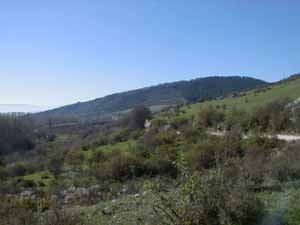A ban on cars on pilgrimage routes; solar panels for cathedral roofs; provision of fresh clean, water for pilgrims, and the planting of thousands of trees around sacred sites – these are just some of the initiatives which the founder members of the Green Pilgrimage Network today pledged to implement.

The Green Pilgrimage Network was launched recently at the Sacred Land Celebration in Assisi, Italy, organised by the Alliance of Religions and Conservation (ARC) in association with the World Wildlife Fund (WWF).
Representatives from 15 faith traditions from around the world gathered in the holy city of Assisi, Italy – one of the founder members – with secular and environmental organisations to launch the world’s first global commitment to green pilgrimage.
ARC Secretary-General Martin Palmer said: “Cities from China to Norway and faiths from all around the world today commit to making one of the most powerful religious experiences – pilgrimage – a living witness to a commitment to protect our living planet.
“This is an invitation to all holy places to put into practice what they preach – namely, that when we walk upon this Earth, we walk on sacred land,” said ARC Secretary-General Martin Palmer
Around 100 million people a year become pilgrims, whether for a few hours, days or even weeks, according to figures compiled by ARC. The Green Pilgrimage Network brings together faiths and local governments to make their pilgrim cities and sacred sites as environmentally sustainable as possible, according their own theologies and understanding of the natural world.
A ban on cars on pilgrimage routes is part of the Green Pilgrimage plan of Kano, Nigeria; solar panels are to be installed on St Albans’s cathedral roof in the UK; provision of fresh clean, water is to be provided for pilgrims to the Golden Temple in Amritsar, India, while the planting of thousands of trees around sacred sites is an initiative of Etchmiadzin, Armenia.
Other plans announced today by the 12 founder Green Pilgrimage Network members include measures to protect nature (Louguan, China), teaching children about conservation (Luss, Scotland); protection of sacred forests (Jinja Honcho, Japan), reducing waste and encouraging recycling (Haifa, Israel) and organising nature tours for pilgrims (Assisi, Italy)
